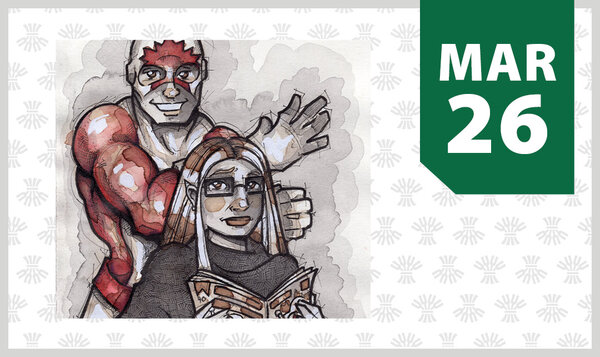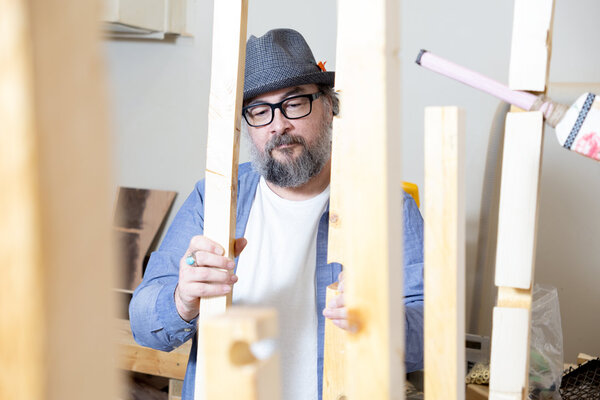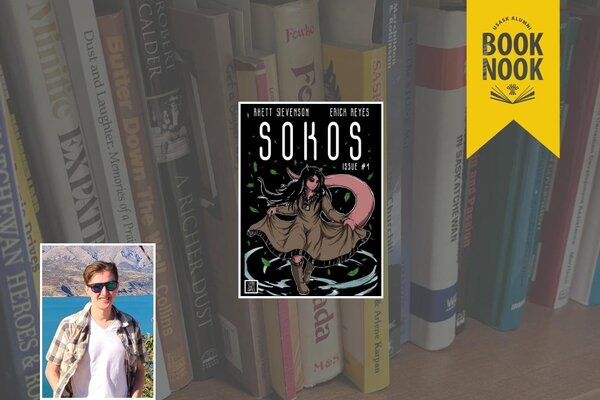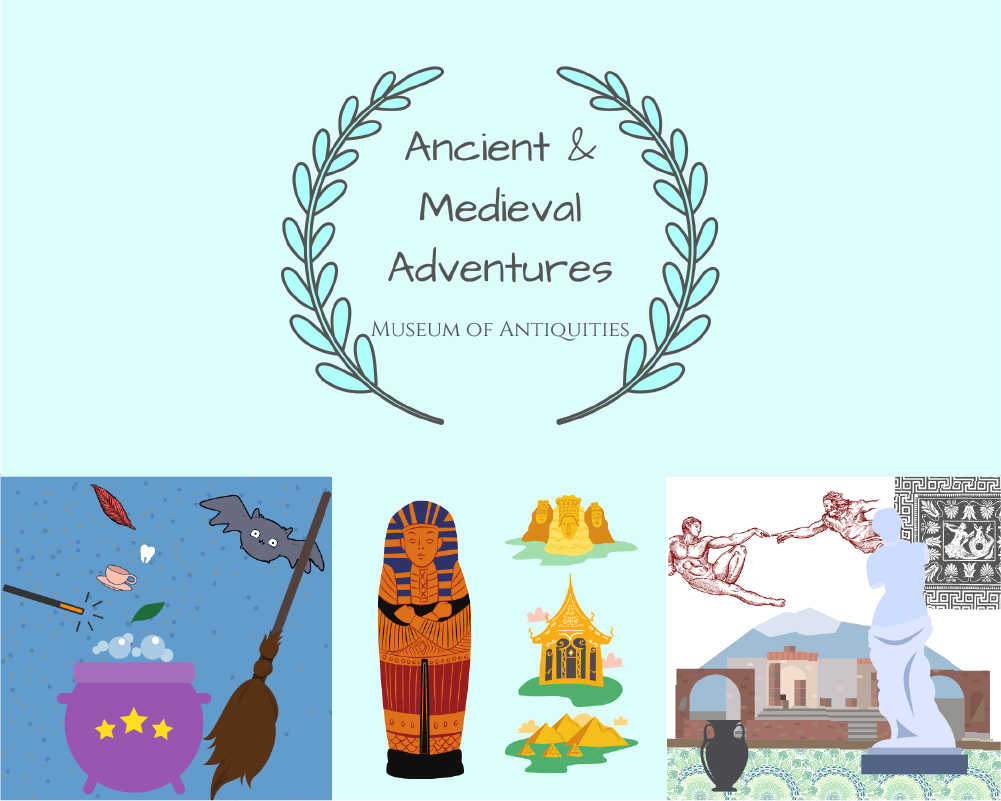
Museum of Antiquities offers online summer camp content to children and parents
Ancient history has been combined with modern technology to create a unique learning opportunity
By Shannon Boklaschuk
When the Museum of Antiquities had to cancel its popular children’s camps this summer due to the COVID-19 pandemic, staff and volunteers worked together to put the camp content online.
Ancient history has now been combined with modern technology to create a unique learning opportunity. Fun, engaging, and interesting information is available for families to access at no cost on the museum’s website. The content is separated into sections based on the following age groups: 6-7, 8-10 and 11-13.
“The process for transitioning to online kids’ content was a bit of a challenge at first, since we needed to determine what formats worked best online for the material we have,” said Dr. Tracene Harvey (PhD), curator of the Museum of Antiquities at the University of Saskatchewan (USask).
“So far, we have created video presentations, narrated video storybooks and eBooks, a blog with crafts, games, and recipes, as well as a series of activity sheets. We also determined that we wanted kids to have access to as many of the camps that had been cancelled as possible, so most of the camps that we had planned to run this summer—including Tiny Titans, Voyages with Vikings, and Magewart’s Magical Creatures—have all been featured. Having the Museum of Antiquities’ main website as the ‘home base’ of the operation has been very helpful in keeping everything organized and easy to find.”
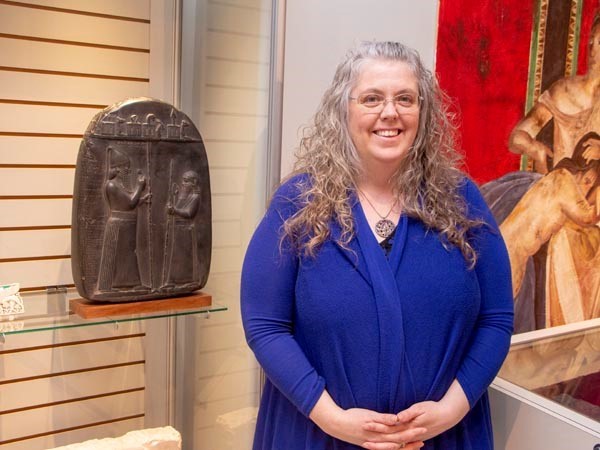
The Museum of Antiquities features a collection of Greek, Roman, Egyptian, and Near Eastern sculpture in full-scale replica. This includes the Charioteer of Delphi, panels from the frieze of the Parthenon, and the Venus de Milo, as well as original ancient glass, pottery, and coinage. Like other USask buildings, the museum is currently closed to the public due to the COVID-19 pandemic.
Harvey, a lecturer in the Classical, Medieval, and Renaissance Studies program in USask’s College of Arts and Science, is particularly interested in Greek and Roman coins. She recently wrote a book on famed Roman empress Julia Augusta, and is known for sharing her knowledge of and passion for antiquity with the USask community and beyond.
“The staff and volunteers at the Museum of Antiquities feel that it’s important for children to understand the wider context in which they currently live. It is important for kids to grow up knowing that so much has happened in history before them, including the distant past, which has helped to shape the society we live in today and the cultures within it,” she said.
“While history doesn’t always necessarily repeat itself, it is cyclical. Often, people don’t realize that ancient and medieval peoples were active in recycling and composting, much like we are today, or that the Romans had a magnificent bath/spa culture that is as wonderful and opulent as our own. Kids are fascinated to learn that modern people are, at times, very similar to ancient people, and how much we have taken from those ancient and medieval cultures that still benefit us today.”
The Museum of Antiquities has been running children’s summer camps since the late 1990s. In 2016 the camps were rebranded as the Ancient and Medieval Adventures Camps, “which has proven to be very successful for the museum in recent years,” said Harvey. Although in-person camps couldn’t be held on the USask campus this year, the museum has received praise for the quality of its online content as well as how fun and engaging it is.
“We strongly encourage parents and kids to take a look and tell us what they think, since the new online approach will shape how we do some of our educational content in the future,” said Harvey.
Now that the camp content has been successfully posted on the museum’s website, staff and volunteers will focus on creating online content for the coming K-12 school year. They will also be thinking about what the in-person camps may look like next summer “in a hopefully post-COVID world,” said Harvey.
“We generally get very positive reviews from both parents and campers after our summer camps are over. We try very hard to make the classrooms fun and interactive and keep the lessons engaging, so that the kids don’t feel like they’re in school,” she said.
“The variety of topics we cover in our camps ensures that there is something for everyone to enjoy. Some parents have been so happy with and interested in our camp content that they asked us to do something similar for adults. We answered the call with our Viking-themed adult educational program called Evening with Sven, which we have run a few times over the past couple of years, and in January we introduced another one, called Dawn and Draw, all of which have been very successful.”
Overall, children really seem to enjoy learning about the lives of kids their own age in the ancient and medieval worlds, said Harvey. She noted that through traditional stories and fables, kids find moral messages and themes from the past that are still relevant in our world today.
“We also try to recreate that history through costumes, authentic historical games and re-enactments of the Vikings and the Romans, as well as hands-on crafts,” she said. “That being said, kids also love making and wearing their own costume pieces, going outside and practicing sword fighting—with foam swords and shields, of course—or other similar activities where they feel like they can connect with past cultures and the things they have learned about them. All of these activities bring the past to life in the imaginations of kids, rather than thinking about people living in the past as being abstract and unrelatable.”
